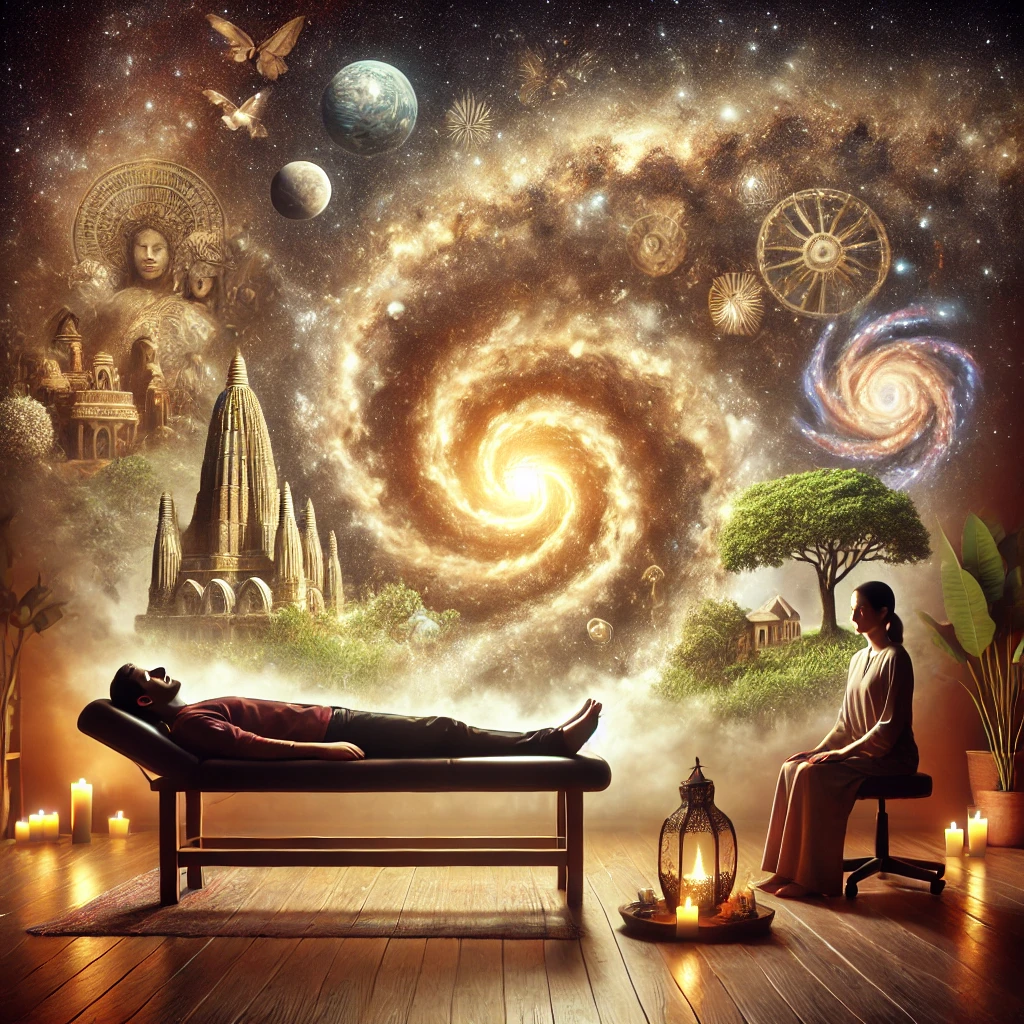Date
The Vedas, the ancient sacred scriptures of Hinduism, are a treasure trove of wisdom that delve into various aspects of life, philosophy, and spirituality. Among the many topics they address, the concept of life after death holds a significant place. This mysterious and profound theme has captivated the minds of seekers and scholars for centuries, as they seek to unravel the secrets hidden within the verses of these ancient texts.
The Vedas and the Soul:
Central to the Vedas is the idea of the eternal soul, known as “Atman.” According to Vedic philosophy, the Atman is immortal and transcends the limitations of the physical body. It is the essence of an individual that persists beyond the cycles of birth and death. The Vedas describe the soul as unchanging, indestructible, and eternally connected to the divine.
The Cycle of Reincarnation:
The concept of reincarnation, or “samsara,” is intricately woven into Vedic teachings. The Vedas propose that the soul undergoes a continuous cycle of rebirth, moving from one body to another. This cycle is determined by accumulated karma, the consequences of one’s actions in past lives. The Vedas emphasize the idea that the ultimate goal is to break free from the cycle of reincarnation and attain liberation, known as “moksha.”
Paths to Liberation:
The Vedas outline various paths, or “margas,” through which individuals can attain liberation from the cycle of birth and death. These paths include the path of knowledge (Jnana Yoga), the path of devotion (Bhakti Yoga), the path of selfless action (Karma Yoga), and the path of meditation (Dhyana Yoga). Each path is a means to realize the true nature of the self and unite with the divine, leading to liberation from the cycle of reincarnation.
The Role of Rituals and Dharma:
The Vedas prescribe a set of rituals and duties, collectively known as “dharma,” that individuals are expected to follow in their earthly existence. These rituals are believed to shape one’s karma and influence the soul’s journey in the afterlife. The performance of righteous actions and adherence to dharma is considered essential for spiritual evolution and the ultimate attainment of moksha.
Descriptions of the Afterlife:
While the Vedas do not provide elaborate details about the specific nature of life after death, they do contain hymns and verses that allude to different realms and states of existence. The concept of “lokas” or planes of existence is mentioned, suggesting that individuals may experience different realms based on their actions and spiritual progress.
Incorporating Vedantic Wisdom
In the quest for understanding life after death, individuals can draw inspiration from the Vedas by:
Embracing Ethical Living: Live a life rooted in ethical principles, recognizing the impact of actions on future experiences in realms beyond.
Cultivating Self-Awareness: Engage in self-reflection and introspection to understand the nature of the soul and its journey through Samsara.
Practicing Rituals: Embrace rituals and offerings that honor ancestors and guide the departed soul on its cosmic voyage.
Aspiring for Liberation: Strive for spiritual growth and self-realization, aligning with the path of Moksha and the pursuit of ultimate liberation.
Studying Sacred Texts: Explore the rich tapestry of Hindu scriptures, including the Vedas, Upanishads, and Bhagavad Gita, to deepen your understanding of life after death and the broader spiritual journey.
The Vedas, as portals to cosmic wisdom, illuminate the intricate tapestry of life after death in Hindu thought. Rooted in the timeless concepts of Samsara, karma, and Moksha, the Vedas offer seekers a profound roadmap for navigating the cycles of existence and embracing the transformative potential of their journeys. As individuals explore the depths of Vedic teachings, they embark on a transformative quest for self-discovery, ethical living, and spiritual liberation—a journey that continues to inspire and guide souls on their path toward the mysteries of life after death.
Conclusion:
The Vedas offer profound insights into the nature of life after death, weaving a tapestry of philosophy, spirituality, and cosmic order. The teachings emphasize the eternal nature of the soul, the cycle of reincarnation, and the paths that lead to liberation. While the specifics of the afterlife remain veiled in mystery, the Vedas guide seekers on a transformative journey towards understanding the true self and realizing the ultimate purpose of human existence. In exploring these ancient scriptures, individuals find a roadmap for spiritual growth and a deeper connection to the timeless wisdom embedded in the Vedic tradition.


